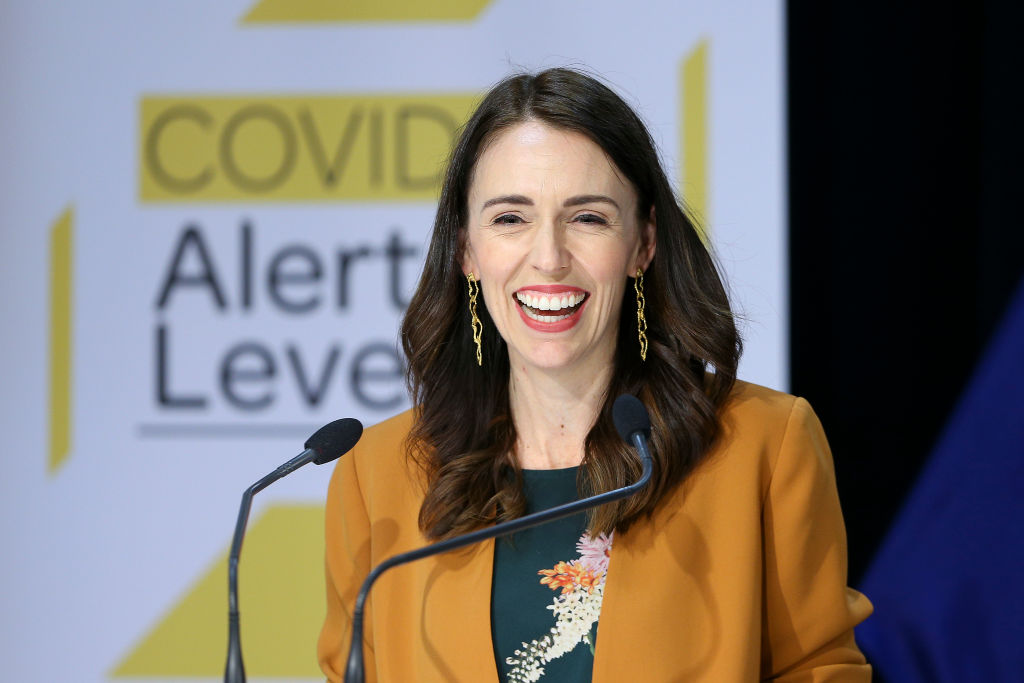
New Zealand records first new local Covid-19 cases in 102 days
New Zealand has recorded four new cases of Covid-19 after 102 days without any community transmission, the prime minister, Jacinda Ardern, has announced at a late-night press conference.
Auckland was swiftly put under a three-day lockdown after four cases were confirmed in one family in the city. The family had not traveled overseas and the source of the infection was unknown.
The country had not recorded transmission of the virus within the community in more than three months and daily life had returned to normal, except for strict border controls.
All 22 known cases of the virus before Tuesday’s announcement were among returning travellers quarantined in isolation facilities
The latest case was diagnosed on Monday in a person in their 50s who lives in South Auckland; a second test on Tuesday also came back positive. The person had no history of overseas travel.
Three other members of the family of six living in the house have tested positive for coronavirus; the others have tested negative. One of those diagnosed was a preschooler.
The family’s contacts, including those in several workplaces, were being tested.
Ardern announced that as of midday on Wednesday, Auckland, New Zealand’s largest city, would be placed in a restrictive phase of lockdown for three days.
She told reporters there were many outstanding questions about the situation and that the most important thing was tracing the case back to its origin.“We have not been able to determine the source of these cases.”
Those diagnosed had no known link to the managed isolation facilities for returning travellers, nor to the country’s borders, where all recorded cases of the virus have been registered.
People in Auckland are required stay at home for at least three days from midday on Wednesday as officials try to trace the source of the infections.
Under the “level three” rules – one step down from the strictest level – people should not go out unless they need to travel for work, or they are shopping or exercising. Contact with others should be kept to a minimum, with all schools and childcare centres, and most businesses, closed. Supermarkets will remain open, and takeaway food and drinks will be available.
The director general of health said case numbers were expected to rise.
“We’re expecting to see other cases,” Ashley Bloomfield said. “We want to find those other cases as soon as possible and identify or isolate any contacts.”
Since early June, when all remaining restrictions – except the border controls – were eased, New Zealanders have enjoyed living in one of the world’s safest and most relaxed countries in relation to coronavirus; so much so that Ardern and Bloomfield had begun to warn in recent weeks against “complacency”. The country was certain to experience another community outbreak, they said.
In the live news conference on Tuesday, Ardern said: “I know that this information will be very difficult to receive. As a team we have also been here before. We know that if we have a plan and stick to it we can work our way through difficult and unknown situations.”
The city-wide lockdown – the wider Auckland region is home to nearly 2 million of New Zealand’s 5 million people – was a “cautious” approach, the prime minister said, but the three-day window gave officials time to gather the necessary information about the outbreak before longer-term decisions were made.
“Moving an entire city, and New Zealand’s largest city into level-3 restriction is not something we’ve taken lightly,” she said, adding that it would not have been possible to isolate one part of the city.
She would not be drawn on how much longer the restrictions could last if the source of the infections was not found, or whether she was considering a delay to the general election scheduled for 19 September.
In recent weeks, New Zealanders have watched as cases surged in the Australian state of Victoria – a situation Ardern has referenced often when urging vigilance.
She and officials had been concerned with the number of people reportedly declining Covid-19 tests, and piecemeal uptake of the government’s contact-tracing app.
Ardern said she “absolutely” understood New Zealanders’ disappointment. “That is a completely natural feeling. We have 102 days and it was very easy to feel like New Zealand was out of the woods.”
She said New Zealand had “gone the longest” of any country without community transmission and “because we were the only ones, we always knew we had to plan”.
“My request is not to be dispirited or disheartened,” she said.
Only those who returning home to Auckland are allowed to enter the city – and only those who live elsewhere are allowed to leave.
Ardern warned against pre-lockdown panic-buying at supermarkets, but photos on social media showed large crowds and long queues forming after the news.
The restrictions on the rest of the country are less stringent: people should not gather in large numbers, work from home if they can, and wear masks if physical distancing is not possible.
With the New Zealand elections in less than six weeks, politicians have been touring the country. Ardern, who was in Auckland recently, said she would remain in Wellington for the next three days.
Source: theguardian.com